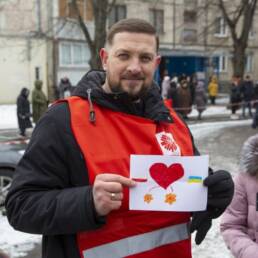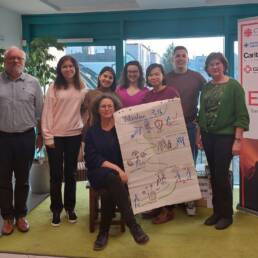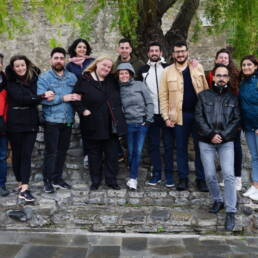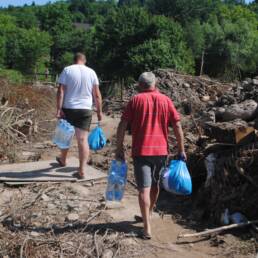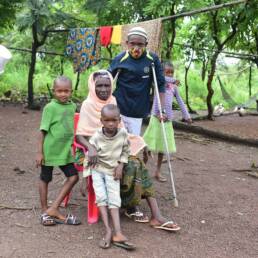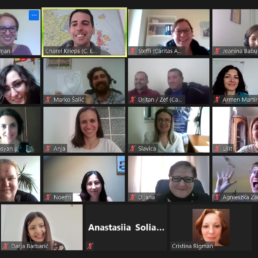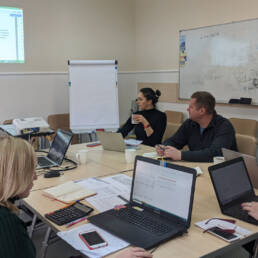Author
Silvia Sinibaldi
Humanitarian Director
Tel: +32 (0)2 235 03 95
Mob: +32 (0)478 58 54 08
ssinibaldi@caritas.eu
After two years of online meetings, representatives of 8 European Caritas organisations met in Sarajevo for a two-day training on Accountability and Learning.
The training brought together colleagues from Armenian Caritas, Caritas Austria, Caritas Belgium, Caritas Europa, Caritas Georgia, Caritas Serbia and Caritas Ukraine and their colleagues from Caritas Bosnia and Herzegovina and from the local Caritas Banja Luka.
Together with the trainers, Caritas staff exchanged about fundamental topics such as the Do-No-Harm principle or the importance of community engagement in different phases of the project cycle. The active listening to the feedback and concerns of the communities that we work with, will likely lead to the improvement of programmes, not only in the humanitarian sector and well beyond, and this is ultimately how Caritas stays true to its mandate and mission. The group also reflected on referrals and the role of coordination. Where Caritas is not in the position to help, as the request is out of its scope or capacity, it is equally important to know how to properly refer the person in need to the appropriate institution that can provide support. At the same time, coordination among organisations and in different fora is fundamental to avoid overlaps and increase the effectiveness and efficiency of the service provided.
It was good to close the training talking about the relevance of structured knowledge management in each organisation, for which the Caritas Europa Knowledge Management Portal can be one of many resources. In addition, the proper planning, organisation and evaluations analysis are just as essential to transform Caritas into a truly learning organisation.

This training on accountability and learning was organised in the frame of the ABC-EUAV capacity building project. The project, which is funded under the EU Aid Volunteers initiative, was launched shortly before the COVID-19 pandemic, making it impossible to implement activities as originally planned. Project partners stayed committed and motivated to find creative solutions, adapting many of the actions planned into online formats. The challenge was sometimes transformed into a brilliant opportunity, as it is the case of the Disaster Risks eLearning training module. Monthly calls were set up to always share experiences and project implementation at country level. However, it was exciting to finally have the opportunity to gather in Sarajevo, where Caritas Bosnia Herzegovina brilliantly arranged the logistics and welcoming of all participants, in full respect of the regulations given by the pandemic but without taking away the joy of being and learning together.


